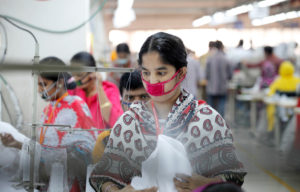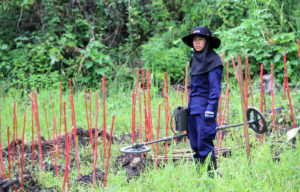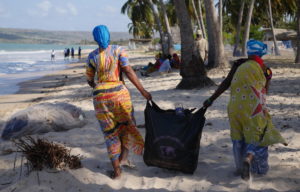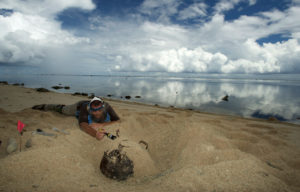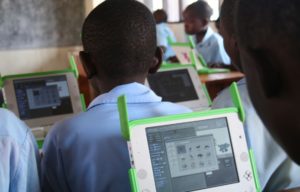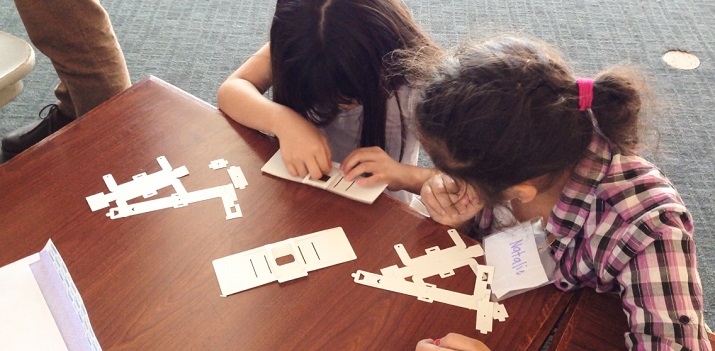
Index: Award
Pocket size health inventions for the developing world
Cook soup with an iron fish or test your eyes with your smartphone. These are some of the smart solutions designers and engineers from all over the world are competing with against each other to bring to the developing countries.
Share
What is INDEX: Awards?
INDEX is a Danish organisation that each year runs a competition to find the best new ideas to improve people’s lives:
“We encourage designers all over the world to stop designing ash trays and tea cups and instead focus their creative skills on more pressing challenges like our changing climate, over population, shortage of water, etc. as we belive that design and design processes can play an important role in creating better solutions for a rapidly changing world”.
The competition awards a total of half a million Euros, and the nominated designs cover everything from advanced technical projects to art designs and architecture.
INDEX: Award began in 2005 an has since awarded a total of 2.5 million Euros to a total of 25 winning designs. This year, the awards will take place the 27th of August in Elsinore, Denmark.
More info: http://designtoimprovelife.dk/award/
Other categories
Region: Global
Theme: New Technology, Sustainability, Technology
Millions of people worldwide are without access to medical care, advanced health equipment and medicine. Entrepreneurs, designers and engineers from all over the world are working on solving that for this year’s INDEX: Award, competing on smart solutions for health problems in the developing countries.
Machines and equipment to diagnose or treat sickness are often too expensive, too advanced and thus require expert technicians, or can be too fragile for use in rural areas – where many of the world’s poorest live.
But health equipment and hospital gear don’t necessarily have to be too big, expensive or advanced. Let’s take a look at some of the smart and creative suggestions to promote health in developing countries.
Fold your own microscope
A microscope is one of the basic laboratory tools. Microscopes can be used to examine blood for parasites like malaria, for example, but are both expensive and difficult to use outside of labs.

Now, Professor Manu Prakash from Stanford University has invented the microscope ‘Foldscope’ you can fold out of paper, but which can still magnify 2000 times and costs less than a dollar. His team has designed the microscope by using origami, so all the parts, including optical lenses and special filters to diagnose specific illnesses, are in one sheet of paper. In just 10 minutes, you can snap the parts free and fold the microscope, which is very robust and durable.
Professor Prakash hopes that Foldscope can bring advanced diagnostic tools literally into the pockets of health workers in rural areas in the developing countries, and be used in education and training for both children and adults.
Smartphones to test your eyes
39 million people worldwide are blind. According to the World Health Organization, 80 percent of all visual impairments can either be cured or prevented, but simply aren’t diagnosed, especially not in the developing countries. Equipment for eye examining and diagnosing visual impairment is often big, expensive and cumbersome, not fit for use in rural villages away from the hospitals. Access to easy and cheap eye examinations could therefore help millions of blind people the world over and prevent even more cases.
The team behind ‘Peek Retina’ (Peek stands for ‘Portable Eye Examination Kit’) has built a small adapter you can just slip over the camera in a smartphone which can vision test and examine for illnesses like cataracts, glaucoma, macular degeneration and diabetic retinopathy. Everything is run by a simple phone app which shows a detailed picture of the retina on the phone screen.
This would allow health workers to examine visual impaired people as easy as taking a picture with their phone, and the equipment fits in a pocket.
Cook soup with an iron fish
This is a very simple solution to a global problem. Two billion people across the world suffer from iron deficiency, the biggest reason for anaemia. Iron deficiency and anaemia primarily result in tiredness and fatigue, and can reduce work- and learning productivity by 20 percent, but it also has a big, “hidden” impact on the spread of diseases.
The World Health Organization hands out small packages with vitamin and iron supplements to children and mothers in many countries, but health workers from Canada have started a project in Cambodia which aims to combat iron deficiency easier and cheaper.

The solution is simple and straightforward. By putting a piece of ordinary iron in the pot when cooking, iron is imparted to the food. But, it was harder than expected when health workers tried to get rural Cambodian farmers to put iron pieces in their rice pots. The women simply didn’t want to. The Canadian team spoke with several village elders and tried to design the iron to appeal more to the farmers. The final shape was a little fish, a symbol of luck and happiness in Cambodia. Thus ‘Lucky Iron Fish’ was born and the Cambodian women love it. By boiling the small iron fish in 10 minutes and then using the water for cooking, there is imparted enough iron to cover 75 percent of the daily need. Now, the team want to spread the idea across Cambodia’s borders.

